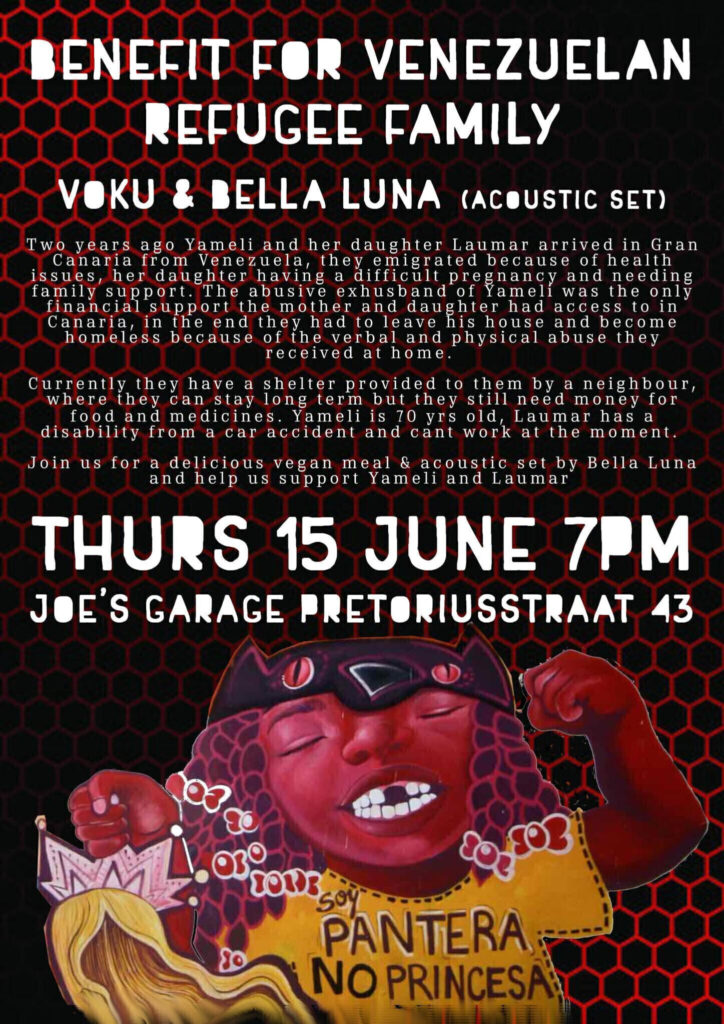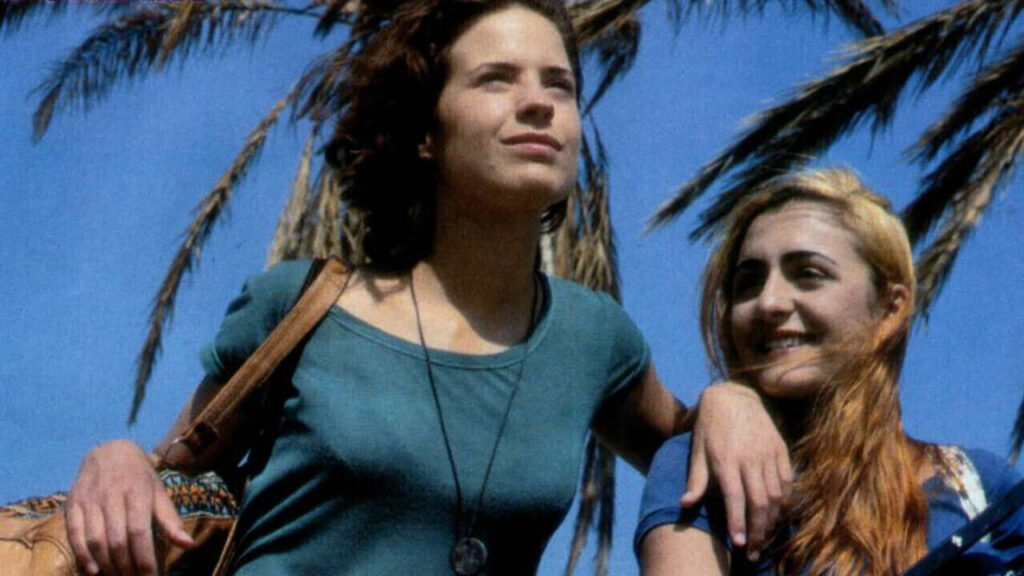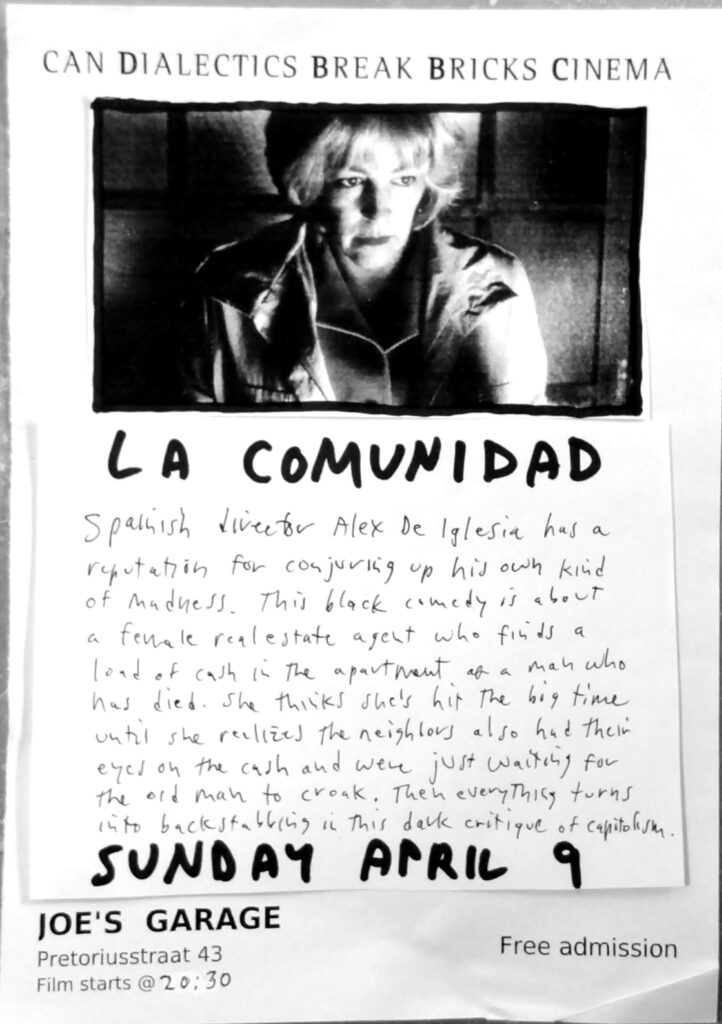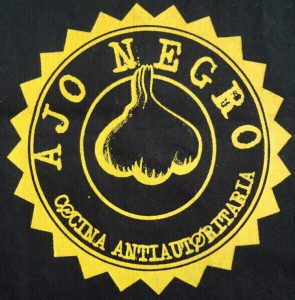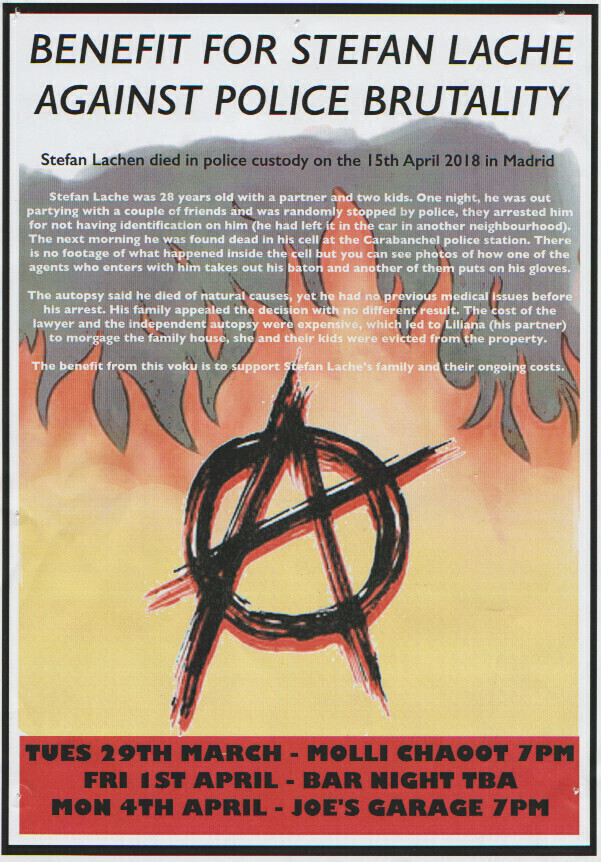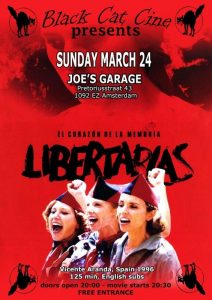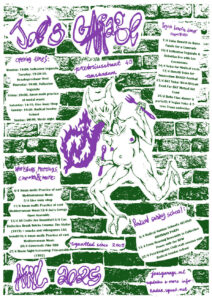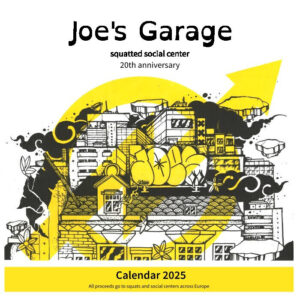Monday 30 January 2023, VoKu benefit for legal fees for Rodrigo Lanza. Food served from 7pm, no reservation.
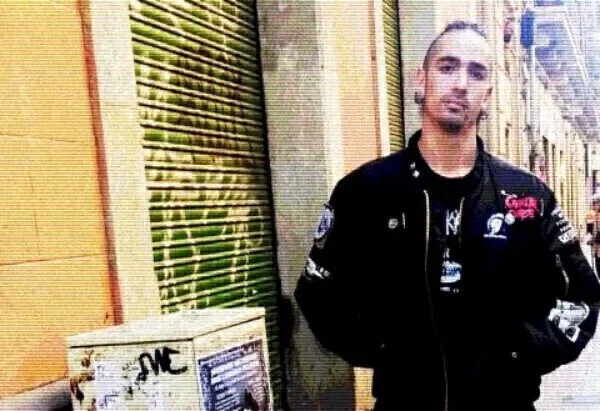 Here is the unfair story of Rodrigo Lanza, sentenced to 18 and a half years in prison.
Here is the unfair story of Rodrigo Lanza, sentenced to 18 and a half years in prison.
Rodrigo, a Chilean, was arrested along with two other South American boys, Alex and Juan, in the street, in front of a squatted house where a party was being held, on 4F, February 4, 2006 in Barcelona. Four other young men were also arrested when they were leaving the house and two more people who had gone to a hospital because they had fallen on their bicycles. bicycle. During the arrest, the 3 South Americans were tortured, both by the urban guard and by mossos de squadra, which they denounced, but it was filed by the judge, who was the same one who was handling the case that accused them. The mayor of Barcelona at the time, Joan Clos, made a public statement saying that the injured policeman had been hit by a flowerpot that had been thrown from the building. As the three boys arrested in the street were not in the building, they changed that version to a stone thrown from the street and set up another story. Rodri was falsely accused of having thrown the stone at the policeman. He, Alex and Juan spent two years in custody awaiting trial. We took to the streets in demonstrations to demand explanations for the change of versions and to ask for parole, which ended with a hunger strike by the three boys and myself, to make ourselves heard, before the investigation was closed. It did not have result. Rodrigo was sentenced to 5 years in prison. Alex and Juan served a slightly lesser sentence and, after the appeal to the Supreme Court which ratified the sentence, Patri who had been detained at the hospital and who was not even at the scene of the crime, entered prison. During a prison leave, she committed suicide in 2011. The rage over the death of Patri and the discovery that the police officers who had tortured the boys had been convicted, in another case, for torturing the son of a diplomat, made that, with Patri’s friends, disassembly 4F was born and with this name a documentary was made, Ciutat Morte, which received, among others, even an award from the Barcelona City Council in 2014. The case became, then, very well known. Rodrigo was finally released from prison in December 2012.
Years later, in December 2017, Rodrigo goes to a bar at night, in Zaragoza, a friend tells him that a person who was there was a known Nazi, and when the group he was with saw that this person, they get scared and decide to leave the bar. While they were leaving, the man followed them and tried to stab Rodrigo, but a boy had warned him “watch out he has a knife” and Rodrigo turns around and defends himself, hits him and runs away. This person subsequently dies. Summarizing…. the police allow friends of the man to enter the place, they even give his phone to an unidentified girlfriend, the bartender who was the main witness to the accusation, leaves the bar and returns to enter …. we assume that the knife may have been his… the knife can’t be found, the cell phone is not known who has it… It was the time of the plebiscite for the independence of Catalonia and the news is in the media as “the crime of the suspenders”, because it was said that the man was wearing suspenders with the Spanish flag on them. It was even said that it was the first Catalan crime against a Spanish person. The media tore us to shreds, we received hundreds of threats and we were afraid to go out in the street. Politicians were happy to “prove” that Rodrigo is a criminal. Back in jail, this time in Zaragoza, he is put in solitary confinement for two years, until the trial. In this trial, with a popular jury and all the press against him, the sentence was 5 years for reckless homicide with the aggravating circumstance of ideological motives. The accusations appealed and, quickly to prevent him from being released on parole, the trial was annulled and repeated with a different jury, in the middle of the pandemic, without the presence of family members and the public, in a trial that was more of a circus than anything else, and with jurors who had already members of the jury who were already prejudiced against Rodrigo. The sentence was 20 years in prison for murder with malice aforethought, with the aggravating circumstance of ideological motives. This aggravating factor for racism, discrimination and gender was created to protect minorities and the weakest, and are distorting its function. Subsequently the Madrid Supreme Court upheld the conviction but rejected the ideological motives and lowered the sentence to 18 and a half years. For us, the role played by the press and the political power in this case has been a nightmare. the media campaign against him and also against me, full of lies and hatred, has condemned Rodrigo. Everything we said at the beginning, they turned it around to use it against him. to use it against us. At the end of last month the lawyer filed an appeal to the Constitutional Court. We are waiting for a response on whether they accept our appeal or not. Then we will go to Strasbourg. All this has been very long and difficult, both emotionally and economically. We still owe money borrowed for the first trial and in the second trial we couldn’t raise money because of pandemic restrictions. All of this has cost us dearly in every way. and, in spite of all the solidarity we have received, the help from Rodrigo’s friends in Zaragoza, from our friends in Barcelona, in Madrid, of people who come to us without knowing them, we still do have a lot to achieve! A year ago Rodri was transferred to Catalonia, he is well, he is strong and he knows that he has us. he has us. He is studying, working and doing many activities that keep him busy.
He answers all the letters he receives!
The documentary Ciutat Morte was screened at Joe’s Garage in 2018, also gives an account of the story: https://joesgarage.nl/archives/14011
Volkseten Vegazulu is a people’s kitchens existing since the very beginning of Joe’s Garage, June 2005. Your donations are welcome. Food is vegan, no reservation. All benefits go to social & political struggles. Joe’s Garage is a space run by volunteers. Without a collective effort, without your active participation, we’re remaining closed. Get in touch in you feel like giving a hand. We’re always looking for cooks. Any help is welcome in the kitchen. Experience not required. If you want to know which days are still available, mail us.
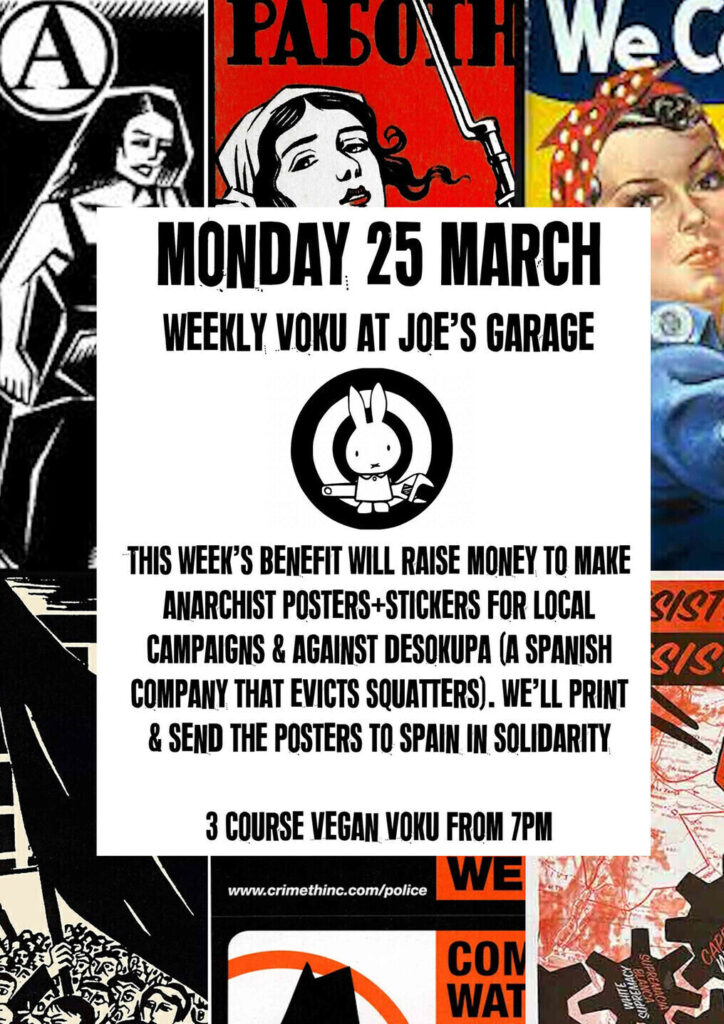 This week we are raising money to print posters and stickers focused on squatting, against gentrification and against Desokupa, a Spanish private company that evicts squatters. […Lees verder]
This week we are raising money to print posters and stickers focused on squatting, against gentrification and against Desokupa, a Spanish private company that evicts squatters. […Lees verder] 